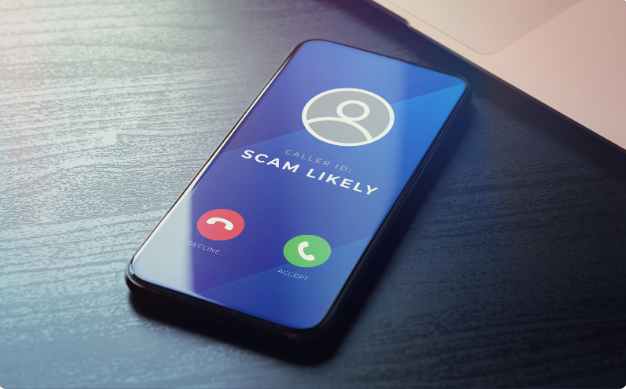Be Aware of Debt Collection Scams During the Holidays
Written by Cooper & Friedman PLLC on December 19, 2023

Around the holidays, consumers see a rise in many things: the number of gifts they need to buy, the dishes to make, the miles they need to travel, the amount of family they get to see, the price of products, the time they have off from work or school. Some of these are good, but not all. And, during all of the hustle and bustle and holiday cheer, one other agent is on the rise – scams. In particular, debt collection scams.
With a spike in purchases and credit card use, scammers love this season and its plethora of opportunities to take advantage of people when things are busy and finances might not be tracked as diligently. One phone call from someone claiming to be a debt collector from your credit card agency could send you into a spiral and put your hard-earned money in the scammer’s pocket. Louisville’s Unfair Credit Reporting & Debt Collection lawyers Cooper & Friedman are here to help you stay safe from debt collection scams!
What is Unfair Debt Collection?
While all scams are illegal, it is important to know that there are ways that legitimate debt collection can be against the law, too. If you have a bill past due, the company you owe money to may contact you either directly or through a 3rd party debt collection agency. This in and of itself is not illegal. However, debt collection under federal law may not be unfair, abusive, or deceptive.
Under the Fair Debt Collection Practices Act (FDCPA), debt collectors are prohibited from using certain practices to collect debts, including:
- Misrepresenting the nature of the debt, including the amount owed
- Falsely claiming that the person contacting you is an attorney
- Threatening to have you arrested
- Threatening to do things that can’t legally be done or threatening to do things that the debt collector has no intention of doing
How to Tell the Difference Between a Legitimate Debt Collector and a Debt Collection Scam
Knowing that it is illegal for debt collectors to practice deceptive, abusive, or unfair collections methods, most legitimate collectors will act in accordance with the law.
Scammers might not act the same, since they may not be aware of the FDCPA or do not feel compelled to abide by it. It might be a debt collector scam if the caller:
- Withholds information about the creditor, amount owed, or debt verification
- Threatens you with jailtime or to have you arrested
- Poses as a government official or attorney
- Threatens to take illegal action such as notifying your family, friends, or place of employment
- Acts pushy or harasses you at unreasonable hours
- Pressures you to pay via an unreliable method, such as on a prepaid card or via money transfer apps like Venmo, PayPal, CashApp, or Zelle
- Asks for sensitive personal or financial information
Call Cooper and Friedman if You Have Been a Victim of Unfair Debt Collection Practices in Kentucky
It can be easy to lose track of what you owe and to who during the holidays, so taking some preventative measures to keep your finances in check can be a big help when it comes to identifying debt collection scams. When preparing for and addressing holiday debt, here are some tips to help you recognize debt collection scams:
- Make a budget early to keep your spending categorized and you out of debt.
- Make sure all of your bills and payments are set to automatically pay the minimum amount each month to avoid late fees and the need for a debt collector.
- Keep a checkbook for a physical copy of your purchases and who you made the purchase from.
- Keep receipts
If you do not recognize the creditor that the debt originates from, be cautious about how you proceed. And if the collector demands that the debt be paid before you get off the phone with them, that is prohibited behavior and you do not have to pay them at that moment. Take the time to contact the creditor’s official line of contact, and if the collector used an unfair, deceptive, or abusive practice when contacting you, you can always submit a complaint with the CFPB or FTC.
If you or someone you love has been the victim of unfair debt collection in the State of Kentucky and are in need of an experienced Unfair Credit Reporting and Debt Collection attorney, give the lawyers at the Cooper & Friedman law firm a call. The attorneys at Cooper and Friedman PLLC have over 50 years of combined experience defending the rights of unfair debt collection victims. Contact us with questions you might have or schedule a free case consultation with an attorney by calling 502-459-7555 today.

